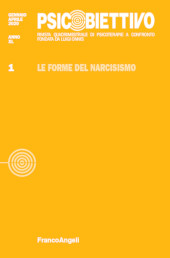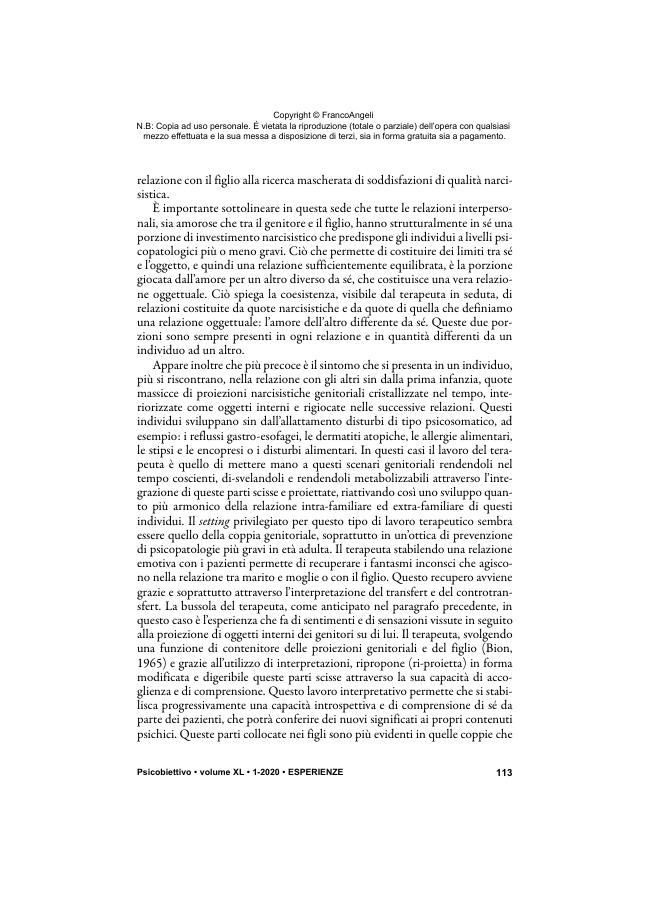Le potenzialità di un patrimonio genitoriale
107-118 p.
Le autrici in questo articolo illustrano le loro riflessioni sul tema dell'incontro relazionale e della co-costruzione del rapporto tra i genitori e il figlio. Esplorano le dinamiche profonde che conducono i genitori delle ultime generazioni a richiedere un aiuto psicoterapeutico per i sintomi di un figlio. Nello specifico viene valorizzata l'influenza profonda che svolge uno scenario narcisistico genitoriale, composto di fasci di proiezioni o di parti scisse e dissociate, all'interno del rapporto con il figlio causando lo sviluppo di sintomatologie in età evolutiva.
Nel lavoro vengono illustrati due casi clinici: il primo di una coppia giunta in consultazione con la richiesta di una psicoterapia per il figlio di 8 anni, che presenta un disturbo nella sfera emotiva e comportamentale e il sintomo di stipsi con encopresi; il secondo di una coppia che arriva in consultazione facendo chiara richiesta per il figlio maggiore di 15 anni che da tempo presenta un disturbo del comportamento e un rapporto conflittuale con loro e con la sorella di 11 anni. In entrambi i casi tutti i membri della famiglia presentano una fragilità narcisistica profonda che apre lo scenario ad una consultazione prolungata volta alla costruzione di setting ad hoc per ognuno dei membri. Le psicoterapie che verranno attivate avranno lo scopo di costruire uno spazio, mentale prima, e reale poi, al servizio di uno sviluppo più armonico dei figli che all'inizio delle consultazioni appaiono in una fase di stallo. [Testo dell'editore].
In this article the authors present their considerations on the relationship between parents and child and its evolvement. They explore the deep dynamics that lead the parents of the latest generation to seek psychotherapist support for the symptoms of their child. In particular, the deep effect of a parents' narcissistic scenario is evaluated. Parents' narcissism is composed by projections and dissociations in the relationship with the child, leading to a symptomatology during the developmental phase of the child. In this article the authors present two clinical cases. The first case explores the dynamics of a couple who seeks psychotherapy support for their eight-year-old son.
The child shows emotional and behavioural discomfort in conjunction with constipation and encopresis. The second case, instead, deals with a request from parents for a psychological support for their eldest son (fifteen years old), who shows upset behaviour as well as a conflictual relationship with his parents and younger sister (eleven years old). In both cases the family members appear with a deep narcissistic vulnerability, which paves the way to a long-term consultation to obtain the construction of a dedicated setting for each of them. The psychotherapy approach put in place for these cases has the purpose of building a space, firstly mental and then real, to support and promote a more balanced development of the teenagers who initially appear in a blocked and suspended position. [Publisher's text].
-
Articles from the same issue (available individually)
-
Information
ISSN: 1972-487X
DISCIPLINES
KEYWORDS
- Narcisismo, genitorialità, identità, età evolutiva, sintomi, psicoterapia
- Narcissism, parenthood, identity, developmental phase, symptoms, psychotherapy



